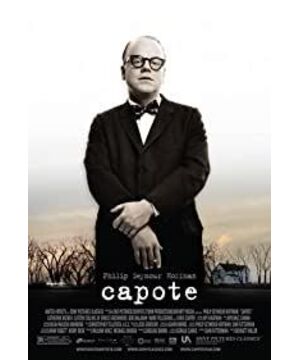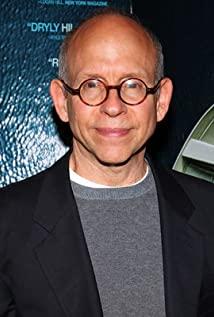If you see "Capote" from "Fox Hunter", you can clearly see the creative characteristics of Bennett Miller-although there are only three feature films, the preference for non-fiction subjects is more important Fascinated by loneliness and inferiority. To some extent, the other side of low self-esteem is likely to be arrogance and destruction. Bennett Miller often captures the pain and destruction of his characters in order to achieve tragic intoxication. What really fascinates me is that he never makes some kind of sophistry for the characters in his films. He just presents as much as possible, but he puts a footnote on their loneliness, and establishes dignity for their inferiority. .
First of all, one characteristic that runs through the three feature films is the common character relationship: Capote longs to be accepted by his class and community, and Perry longs to be understood by people. The only difference between the two is the difference in discourse power caused by class ( "Capote"); Billy is eager to prove himself through the season's results, Peter is eager to subvert the Baseball League with new management methods, and also to prove himself. The difference is only the power relationship between the two-this is also the best of Bennett Miller. Works that are not gloomy? ("Penalties as Gold"); DuPont is eager to find meaning and value for his existence, not only to gain the approval of his mother, but Mark is eager to step out of the shadow of his brother Dave-DuPont also, each has talents and advantages in life. Seems at a loss for Dave, happiness—the most universal and cliche word is the eternal absence of these two souls ("Fox Hunter"). Through the encounter and collision of two homogenized characters, contradictions and conflicts are unfolded and drama is formed.
In the opening scene of "Fox Hunter", Mark raised his Olympic gold medal among a group of elementary school students and gave a speech worth 20 dollars, which was tragic and weird. The rigid body movements will make the audience hesitate a bit at the moment of sympathy. What is passed to us by the movement alone is a tenacious defense of self-esteem that can be called a "patriot." What is his desire? score? It seems that he already has it. It is family, happiness, recognition, and confrontation with the conflict between the unreconcilable desire and cost of success. Compared with Mark, DuPont seems to have no lack of respect. Everybody from all walks of life maintains a proper sympathy and response to him, but the reason for this is not because of his first name, but his surname. When DuPont first saw Mark in a scene, Bennett Miller gave an unusual perspective and strengthened his sense of mystery. When he moved to the study room, before shaking hands with Mark, he gave a reverse shot in the film: He looked out of the painting, and the audience would mistakenly believe that there were still people in the space outside the painting. The result was actually a close-up of a photo of him. Mother. Compared with her son, the mother’s message is even more mysterious. Her appearances are all halfway through the journey, but it is undeniable that her majesty and power are shrouded in the entire manor through her horse, just as her presence affects her son all the time. And everyone in the manor.
Returning to "Capote", the relationship between characters has become a more concrete sympathy-utilization relationship. Capote's arrogance and conceit as an elite writer is reflected in his negotiations with everyone in the film. The first is the opening remarks and witty remarks, and then the real purpose of this trip. He always seems to have the confidence that the other party can't refuse the requests he makes; however, such words can hardly conceal the inferiority deep in his heart. In the three receptions and social scenes between him and other celebrities, we learned about his extraordinary social abilities and often assumed the role of performer in the center of the stage. What I felt for the first time was the immense loneliness in a person's heart and the desire to be accepted. In prison, Capote said to Perry: If I didn't write this book, the world would treat you like a monster. If Capote didn't have the recognition of books and his class as admission tickets, his weird character, way of speaking, and comradeship would be regarded as monsters by these people who wear bow ties and drink martinis. A criterion that is often used to evaluate the characterization of movies is: whether the complexity of the characters is shown. In my opinion, complexity means that a single character or characteristic is never used as the basis for the establishment of a character. His understanding of Perry's empathy is true, and his use of second-hand experience as a stepping stone to his recognition is also true. The two are never contradictory. The sobbing at Perry before the execution I never think it is Capote—a person who can easily use his own words and emotions to achieve his goals—the kind of play with celebrities, people in the world who truly understand me are about to be far away. Go, the soul that can resonate with me is about to be silent, but my background has to sacrifice him in exchange for the ticket to the majority.
Capote's trial reading for his new book "Cold Blood" is very representative. It explains the actual relationship between the two in three minutes. It is also a textbook-level scene application and parallel editing.
The audience in the depth of field is blurry and full of distance, and the cool tone of Capote's top light at this time also reflects his loneliness.
The side shot of the reverse shot, Capote's smallness is unobstructed.
Repeat the previous front and back shots to increase the audience's awareness of Capote's psychological state at this time.
Cut to the close-up of Perry's flipbook. Then cut to a close-up of the face, which seemed to respond to Capote's reading.
From the POV perspective, Perry sees the scene before his prisoner's execution.
Switch back to Capote's trial reading. Note that the camera position at this time is different from that at the beginning of the trial reading: the camera is gradually zooming in. From the previous vision to the panorama.
Perry's close-up also zoomed in echoingly. It seemed that Capote's audience was no longer the audience, but death row prisoners thousands of miles away.
The scene is cut from the previous panorama to the close-up. The audience was hinted at this time, and the audience in the audience seemed to have established a certain degree of recognition for Capote's new work.
The audience who cut to the audience strengthened the previous suggestion effect.
The scene has now become a close-up. Even reading aloud, it seems to have entered the final chapter of the symphony. Capote's new book is truly extraordinary.
Cut to Perry’s POV, a sense of irony appeared instantly: relying on Perry’s oral experience, writers thousands of miles away are accepting the upcoming cheers and applause; at this time, Perry’s only waiting for him is death. .
The two people's xinxing resonates with each other, but they are used to some extent in the relationship of being used, the language of the lens has already explained.
The same position as the opening scene, a closer scene. Capote got what he wanted
But the counterattack at this time is back to the vision of the opening. The hint or confusion of the camera is actually just an illusion. Capote did gain recognition, but he himself seemed to be skeptical of this recognition—the distance from the audience was not narrowed by the applause. Perhaps Perry is an emotional toy for Capote, and Capote himself is not a toy for the upper class to play and appreciate?
View more about Capote reviews











